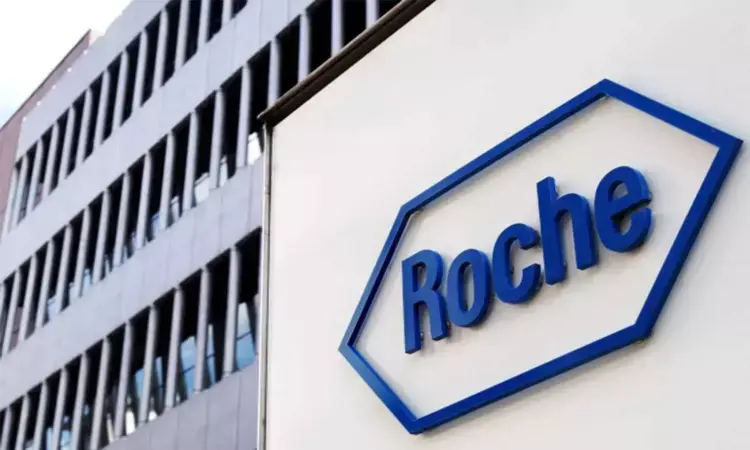- Home
- Medical news & Guidelines
- Anesthesiology
- Cardiology and CTVS
- Critical Care
- Dentistry
- Dermatology
- Diabetes and Endocrinology
- ENT
- Gastroenterology
- Medicine
- Nephrology
- Neurology
- Obstretics-Gynaecology
- Oncology
- Ophthalmology
- Orthopaedics
- Pediatrics-Neonatology
- Psychiatry
- Pulmonology
- Radiology
- Surgery
- Urology
- Laboratory Medicine
- Diet
- Nursing
- Paramedical
- Physiotherapy
- Health news
- Fact Check
- Bone Health Fact Check
- Brain Health Fact Check
- Cancer Related Fact Check
- Child Care Fact Check
- Dental and oral health fact check
- Diabetes and metabolic health fact check
- Diet and Nutrition Fact Check
- Eye and ENT Care Fact Check
- Fitness fact check
- Gut health fact check
- Heart health fact check
- Kidney health fact check
- Medical education fact check
- Men's health fact check
- Respiratory fact check
- Skin and hair care fact check
- Vaccine and Immunization fact check
- Women's health fact check
- AYUSH
- State News
- Andaman and Nicobar Islands
- Andhra Pradesh
- Arunachal Pradesh
- Assam
- Bihar
- Chandigarh
- Chattisgarh
- Dadra and Nagar Haveli
- Daman and Diu
- Delhi
- Goa
- Gujarat
- Haryana
- Himachal Pradesh
- Jammu & Kashmir
- Jharkhand
- Karnataka
- Kerala
- Ladakh
- Lakshadweep
- Madhya Pradesh
- Maharashtra
- Manipur
- Meghalaya
- Mizoram
- Nagaland
- Odisha
- Puducherry
- Punjab
- Rajasthan
- Sikkim
- Tamil Nadu
- Telangana
- Tripura
- Uttar Pradesh
- Uttrakhand
- West Bengal
- Medical Education
- Industry
Roche Alzheimer's drug gantenerumab fails to meet goal in long-awaited trial

Basel: Roche today announced results from the GRADUATE I and II studies evaluating gantenerumab in people with mild cognitive impairment (MCI) due to Alzheimer's and mild Alzheimer's dementia, collectively called early Alzheimer's disease. The studies did not meet their primary endpoint of slowing clinical decline. Gantenerumab was well tolerated, including the subcutaneous administration.
Gantenerumab is a fully-human monoclonal IgG1 antibody, an investigational medicine that is subcutaneously administered and designed to target and bind to aggregated forms of beta-amyloid, including oligomers, fibrils and plaques, and activate immune cells in the brain (microglia) to clear amyloid plaques and prevent further accumulation. Gantenerumab was discovered in collaboration with MorphoSys.
"So many of our families have been directly affected by Alzheimer's, so this news is very disappointing to deliver," said Levi Garraway, M.D., Ph.D., Roche's Chief Medical Officer and Head of Global Product Development. "We are profoundly grateful to the study participants, their care partners, and study sites for their contributions to this research. While the GRADUATE results are not what we hoped, we are proud to have delivered a high quality, clear and comprehensive Alzheimer's dataset to the field, and we look forward to sharing our learnings with the community as we continue to search for new treatments for this complex disease."
Study participants treated with gantenerumab showed a slowing of clinical decline in GRADUATE I and GRADUATE II of -0.31 (p=0.0954), and -0.19 (p=0.2998) respectively from baseline score on the Clinical Dementia Rating-Sum of Boxes (CDR-SB), however, neither was statistically significant. This represents a relative reduction in clinical decline of 8% in GRADUATE I and 6% in GRADUATE II compared with placebo. The CDR-SB measures cognitive and functional change across six areas including memory, orientation, judgment and problem solving, community affairs, home and hobbies, and personal care.
The level of beta-amyloid removal, the protein that builds up to make plaques in the brains of people with Alzheimer's disease, was lower than expected. Roche will present topline findings of the GRADUATE I and II studies at the upcoming Clinical Trials on Alzheimer's Disease (CTAD) Conference on Wednesday, 30 November, 2022 at 16:15 PT.
Amyloid related imaging abnormalities (ARIA) are a common radiological finding associated with amyloid-targeting therapies. The incidence of ARIA-E (oedema or effusion) in the pooled gantenerumab arms was 25%, with the vast majority being asymptomatic and very few leading to treatment discontinuation. The incidence of isolated ARIA-H (haemosiderin) was balanced across the gantenerumab and placebo groups.
Read also: Roche Diagnostics, Redcliffe Labs collaborate for early Alzheimer's prediction
Ruchika Sharma joined Medical Dialogue as an Correspondent for the Business Section in 2019. She covers all the updates in the Pharmaceutical field, Policy, Insurance, Business Healthcare, Medical News, Health News, Pharma News, Healthcare and Investment. She has completed her B.Com from Delhi University and then pursued postgraduation in M.Com. She can be contacted at editorial@medicaldialogues.in Contact no. 011-43720751


